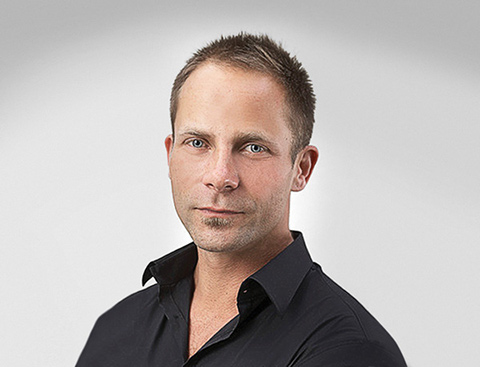In 2010, Dr. James Maskalyk – who did his postgraduate medical training at U of T from 2000–04 and is now on faculty in U of T’s department of medicine – travelled to Ethiopia to train ER doctors in a country that had none. Now, there are 15. Below, Maskalyk describes one day in an Addis Ababa emergency room. The piece is adapted from his forthcoming book, Life on the Ground Floor, which centres on his ER experiences.
The ER at the Black Lion Hospital in Ethiopia has two tin rooms and a back hall. That’s it, the place that gathers people too sick for anywhere else. Students pass through, a tour of duty to the front lines, grateful to leave the dying behind when their month is up. At home in Canada, emergency medicine is one of the most competitive specialties for medical students, and most who apply won’t get in. Here, no one knows why you would do it, because it appears that for the sickest, little can be done.
Aklilu, the doctor tasked with making emergency medicine thrive in Ethiopia, and my oldest friend here, sees ahead. This is his life more than mine, and it is him I am here to help. He knows there can be no future for a country without a place that cares for those who are hurt worst. All emergencies happen mostly among the poor. Every year, after generations of trying, one billion climb above the poverty line. Every year, the same number fall below it. The most common reason for their drop? A health crisis.
A young girl struck by a lorry lies quietly. In her trachea, a plastic tube, a honeycomb of blood bubbling in it. There are no ventilators in the ER, and the four in the intensive care unit are pushing breaths into others. The girl, at least for now, is breathing on her own, her tube connected to nothing.
Aklilu and I squeeze past the family, to her head. Her breaths come quickly, in bunches, then draw out into sighs. This pattern is a bad sign. The pressure in her brain is reaching its limit, pushing what keeps her breathing into a space too small to hold it. Her breath hitches. I pull down one of her lids. The pupils twitch. If seizures persist, large muscles tire, and the convulsion stops. Look to the eyes.
Biruk, a resident, stands at the foot of the bed. He spent last night here.
I direct him to the head, show him the saccades of her irises.
“She kept on with her seizures all night,” he tells me, “so we gave her some Valium, but didn’t want her to stop breathing.”
I ask Aklilu and Biruk about different intravenous medicines, ones that work on seizures, and they shake their heads. They know what I’m talking about but until now, there has been too few people asking for it for any of the pharmacies to stock it. There is one that comes in pills, Biruk says. We decide to crush some, put them into her stomach with a tube, but we all know she is dying.
The family looks at us, wide-eyed. An older man wearing plastic sandals, one red, one blue, his feet callused at the buckles, holds her hand.
“Do they understand?” I ask Biruk. He nods.
Biruk says some words in Amharic.
Tears well in the father’s eyes. We move on.
Residents in white coats lean over patients, listening for trouble in hearts and lungs. No computers. Aklilu leaves to attend a meeting, and Biruk folds his coat under his arm, ready to return to his bed for some sleep.
I stop him. “You did good, man. It was the right thing to do to intubate that girl. I would have done the same thing.”
He smiles softly, and walks past the growing crowd of patients at the metal door waving their hospital cards.
James Maskalyk divides his time between Ethiopia, as a visiting professor of emergency medicine at Addis Ababa University, and Toronto, where he is an ER doctor at St. Michael’s Hospital – not to mention a Toronto DJ. He also has a blog at www.jamesmaskalyk.com. Life on the Ground Floor (Doubleday Canada) comes out in April.
Recent Posts
People Worry That AI Will Replace Workers. But It Could Make Some More Productive
These scholars say artificial intelligence could help reduce income inequality
A Sentinel for Global Health
AI is promising a better – and faster – way to monitor the world for emerging medical threats
The Age of Deception
AI is generating a disinformation arms race. The window to stop it may be closing





One Response to “ Life and Death in an Addis Ababa ER ”
Thank you, James, and thank you U of T for making a difference in Addis Ababa. Black Lion hospital is one of the biggest teaching hospitals in Ethiopia. It doesn't have the facilities or teachers of U of T, but it is making a difference in a country with almost three times the population of Canada. I can't imagine the challenges for everyone who provides care. But interns and staff are all working hard to help patients. I'm humbled and proud to see my adopted country providing such genuine care.